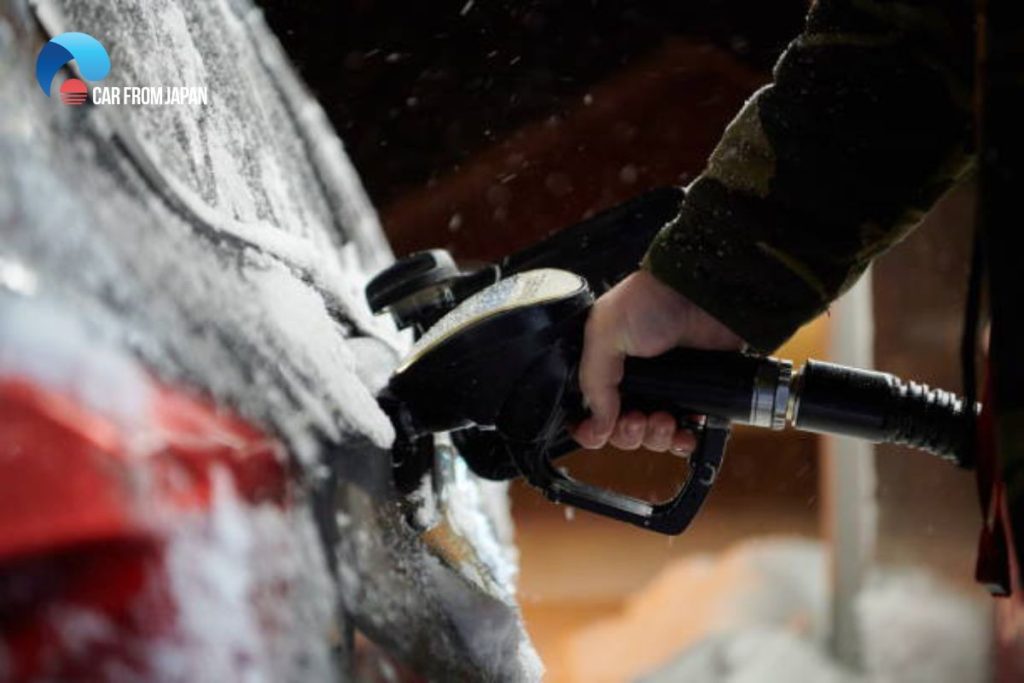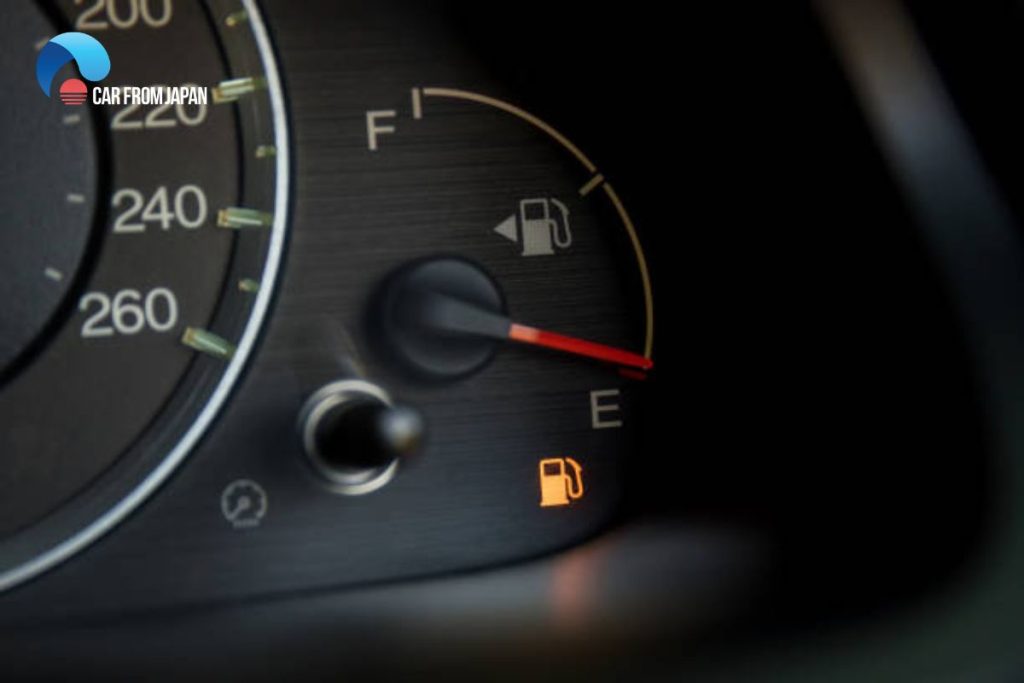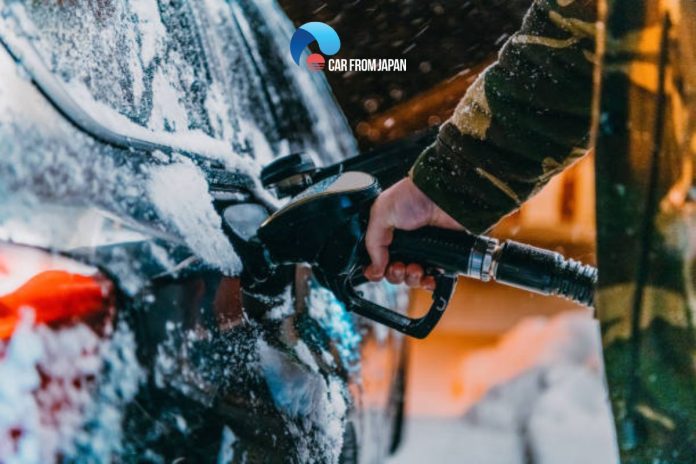The idea of gasoline freezing in your car, particularly when the tank is low, can be a worry for many drivers facing extreme cold. We see water turn to ice, so it’s natural to ask: “Can gas freeze in your car when the tank is low?” While gasoline has a much lower freezing point than water, an almost empty tank during freezing weather isn’t ideal for other reasons. Let’s look into the science and practicalities.
Contents
Can Gas Freeze in Your Car? What Does the Science Say?
A dramatic temperature drop causes many unwanted side effects on your car. Lots of drivers never let their gasoline tank be empty below the halfway fill level for fear that gas could freeze and ruin the gas tank.
The concern is real and scary because fixing or replacing a damaged gas tank would be expensive. But can gasoline freeze this way?
Gasoline, commonly referred to as gas, has a relatively low freezing point compared to water. Therefore, under normal circumstances, gasoline is unlikely to freeze in your car’s gas tank, especially if you live in an area with average or warmer temperatures.

What Temperature Does Gasoline Freeze?
Gasoline freezes at around -100 degrees F. This figure may slightly vary based on the ingredients mixed into the fuel. For example, octane has a higher freezing point. Also, diesel fuel has a higher freezing point than gasoline, and fuel gelling can occur when the temperature drops below 32°F.
For this reason, many fuel companies sell different fuel blends for summer and winter. The summer blend contains some additives that prevent it from gelling at low temperatures.
It is almost impossible to ice up gasoline because none of the inhabitable places on Earth have that kind of temperature. Of course, Antarctica is colder but you are not going to drive a car there. So, the concept of frozen gasoline is highly unlikely to happen.
You don’t need to be worried about frozen fuel when running your car with gasoline. However, cold weather will still have some damaging effects on the gas tank, fuel lines, and the engine. Several ways can cause moisture build-up inside the gas tank. If that happens, the fuel will freeze up at a far higher temperature than -100 degrees Fahrenheit.
So, can gas freeze in your car when the gas tank is low? Unlikely. But low temperatures will create other kinds of problems.
Our advice: If you live in an area with extremely cold winters, it’s a good practice to keep your gas tank at least half full during the coldest months. This helps to reduce the amount of air in the tank, which can minimize condensation and the potential for water to freeze and cause fuel line blockages.
The Problems Of Low Fuel In The Gas Tank

The low freezing point of gasoline means that cold temperatures cannot ice it up even when the tank is low on gas. However, driving with a low fuel tank is bad for the engine’s health. If you constantly leave the tank at only 1/4-th portion full and keep driving, one of the following issues could occur:
The gas line will freeze if there are any condensation or water droplets inside the line or tank. This condition damages the engine mechanism and the vehicle may end up being dead.
Extreme cold may break down the gasoline into its elements, leading to forming wax crystals. When this happens at an aggressive rate, these wax materials cause a state called ‘gelled fuel’, which cannot flow through the fuel lines.
Also, the fuel pump has a shorter lifespan if you never bother to keep the tank more than half-full. Remember that the fuel gauge may show more than the level in the fuel tank, especially when the weather is cold. The safety measure is to check regularly. Otherwise, you may be stuck in a remote place with a dead engine and an empty fuel tank.
Watch more:
How to Avoid Low Fuel Problems
Well, the obvious solution is keeping the tank full or almost full. But you cannot do that all the time because you may simply forget to fill it up. Besides, many people don’t notice until the system gives warnings for an almost empty tank.
The good news is you are unlikely to face most of these above-mentioned issues because both the fuel injection systems and ethanol-based gas have been improved during the past decades.
To avoid the freezing of the gas line, make sure the line is fresh and free of leaks. Any crack or hole lets in moisture, causing the line to ice up when the temperature gets cold. Another effective measure is to avoid alcohol-blended fuel, particularly when the weather in your area turns freezing. Alcohol draws in and retains moisture, causing the fuel to harden at a high freezing point.
However, it is not always possible to keep moisture away. To protect the gas line, you can occasionally use an anti-freeze additive to defrost any water buildup.
FAQs
What is the freezing point of gasoline?
You won’t see gasoline freeze at one set temperature because different types have different makeups. However, it typically needs to get super cold, like -40 to -60 degrees Celsius (-40 to -76 degrees Fahrenheit), before it might start to thicken or freeze.
What happens when gas freezes?
When gasoline freezes, it turns into a waxy or slushy solid that won’t flow through your fuel lines or pump. This means your engine won’t get any fuel and therefore won’t start or run until the gasoline thaws and becomes liquid again.
Is it bad to have low fuel in winter?
Yes, it’s generally not ideal to consistently run your car with low fuel in winter:
– Condensation & Fuel line freeze-up
– Fuel pump strain
– Risk of being stranded
In conclusion, can gas freeze in your car when the fuel level is low? Yes. But you can avoid this trouble by taking a few simple measures.



